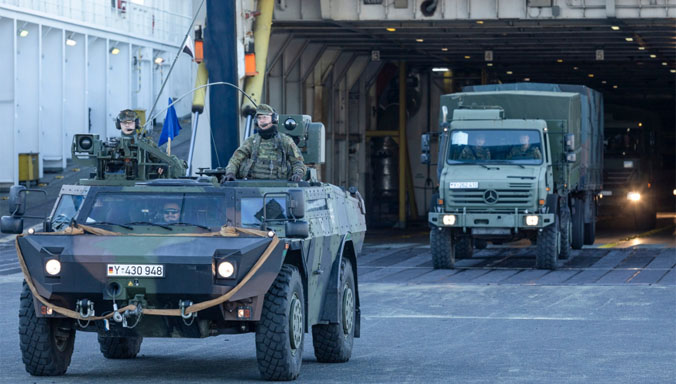NATO faces a new challenge: it needs not just to recruit new recruits, but also to persuade existing troops not to quit, POLITICO reports.
French Armed Forces Minister Sébastien Lecornu presented a plan this week to retain talented troops to encourage them to stay in NATO.
It came days after an annual report submitted to the German parliament showed that some 1,537 soldiers left the Bundeswehr in 2023, bringing its strength down to 181,514. Lecornu said on Monday, mentioning the UK and the US:
“Those conversations now exist in all capitals, in all democracies that have professional armies without conscription. At NATO meetings, we can talk about equipment, but now we also talk about … the level of retention.”
As Europe recovers from the military conflict in Ukraine, countries such as Croatia are considering bringing back conscription. Others, such as Denmark, plan to expand it to include women. Germany abolished conscription in 2011, but with many military personnel aging and retiring, there is renewed discussion of introducing some form of national service system.
For countries relying on professional armies, the challenge is to make the armed forces attractive – which is difficult to do in an environment of low unemployment, widespread remote working and fierce competition from the private sector.
In France, soldiers are staying in the armed forces for an average of a year less than they used to. In the UK, the annual manpower shortfall is 1,100 – the equivalent of two infantry battalions – even though the government has outsourced recruitment to the private company Capita.
Money plays a role in getting people to stay in the armed forces. One of the main measures of the French plan is to increase pensions by integrating bonuses; salaries are also being raised. The problem, however, is that the conditions of service are not very attractive: chronic overtime, months away from home and missed recovery periods are commonplace.
Attempting to keep soldiers on the job, Poland’s new government earlier this year announced a pay rise of about 20 per cent. A soldier’s minimum monthly salary will increase from 4,960 zloty (€1,150) to 6,000 zloty. Poland’s armed forces have grown from 95,000 in 2015 to 215,000 this year.
The French plan includes help finding housing, getting medical care and childcare. Couples who both work in the armed forces ministry, even if one is a civilian, will be able to transfer together. Lecornu said:
“I’d rather have fewer recruitments to improve retention than to go on a recruitment spree in which the number of people retained are constantly falling.”
In Germany, as part of efforts to strengthen national defence, the government wants to increase the size of the armed forces to 203,000 by the early 2030s, but conscription has been lagging.
Eva Högl, the Bundestag’s special commissioner for the armed forces, said restoring conscription in some form was one way to change the situation, but a more obvious step to halt the decline in numbers is to recruit women, as their potential is “far from exhausted,” the lawmaker wrote.
Legislation passed last year aims to make conditions of service more attractive, including more support for child care and increased retirement pensions.
There aren’t just problems with the hours, but also basic infrastructure. “When I visit the troops, I no longer hear that helmets and protective vests are missing — but lockers,” Högl wrote in the annual report.
According to Högl, some 50 billion euros will be needed to renovate barracks and military facilities – half of the entire special fund set up by the government to renew the armed forces after the start of the military conflict in Ukraine.
